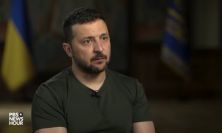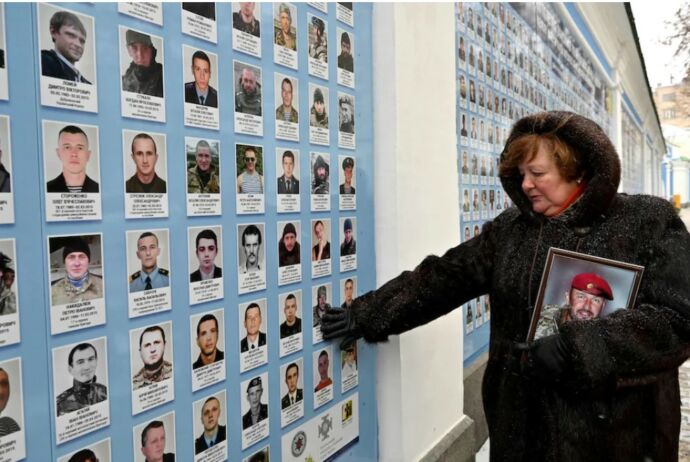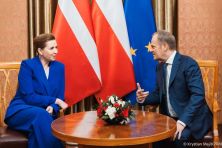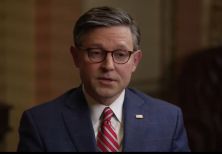By Nataliya Gumenyuk
Nataliya Gumenyuk, the founder of the Public Interest Journalism Lab, is a Ukrainian author and journalist specializing in foreign affairs and conflict reporting.
I’ve lost count of the number of calls and emails I’ve received from foreign correspondents this month. “What’s the mood like in Kyiv?” “Are there military drills in Kharkiv?” “Are people expecting help?” I do my best to respond patiently (though I can’t help feeling a bit irritated).Opinions to start the day, in your inbox. Sign up.
Ukrainians are getting on with life: returning from holidays, working and generally staying calm. There is no panic in the capital, which today looks like any European city. The nervous talk is coming almost exclusively from Washington, Geneva or Brussels.
Make no mistake, the threat of more than 100,000 Russian troops stationed near our borders is a matter of existential importance. Ukrainians understand this. But we also understand that our opinions do not necessarily matter. Though it is up to Ukraine to defend itself, there’s almost nothing our government can do to prevent a big war. An air of grim realism prevails. I call it “doomed optimism.” We control what we can control, and we cannot afford to be consumed by anxiety over what we can’t control.
Over the past weeks, Moscow has issued a series of ultimatums. They boil down to two demands: The Kremlin wants to change the international security order and subordinate neighboring countries to its whim. It insists that NATO must drop its policy of accepting anyone who wishes to join, contradicting the whole idea of the alliance.
Note that Moscow is directing all of these demands toward the United States, not Ukraine. Ukraine has essentially been stripped of any agency in discussions about its own future. And yet it is seemingly expected to fight to defend itself on its own. Support for NATO membership is growing in Ukraine — the paradox of Russia attacking Ukraine for seeking to improve its own security is not lost on anyone — but no one expects NATO boots on the ground at any point in the near future.
We Ukrainians do not consider ourselves to be helpless pawns in a game of global chess. We would like to think of ourselves as David fighting Goliath — while the rest of the world looks on.
Our army is on alert, morale is high, the troops have combat experience and the military leadership claims it is in control. At the same time, no fair observer would suggest that Ukraine has enough equipment to maintain a prolonged conventional defense against the formidable Russian military.
The Americans and the Europeans have so far offered mainly vague promises of sanctions, which they claim is a form of deterrence. Yet this doesn’t seem to be intimidating an opponent who declares it has little to lose, who cares more about global dominance than a damaged economy, and who appears to have rejected pragmatism. For a self-declared militant power such as Russia, pulling back at this point could look like weakness.
As for Ukraine, it has no obvious way of de-escalating the situation — because no one is on the military escalator in the first place. There is no political force in our country calling for a war with Russia. President Volodymyr Zelensky won election to office by promising to resolve our conflict with Moscow peacefully. In his latest speech, after a visit by U.S. Secretary of State Antony Blinken, Zelensky urged Ukrainians to “take a deep breath” and “calm down.”
Ukrainians are used to war. We’ve lived through eight years of fighting; 14,000 lives have been lost. Pro-Russian forces occupy seven percent of Ukrainian territory. Those in eastern Ukraine, who are likely to be hit first in the event of an all-out Russian attack, not unreasonably say that the rest of Ukraine should learn to deal with the constant threat.
It’s hard to imagine Russian boots setting foot in Ukraine’s fun, free-loving, booming capital. Kyiv is now a city where people have learned to enjoy democracy after fighting off authoritarianism and Russian dominance in the Maidan revolution of 2014.
But the main reason for our calm is the confidence that Ukrainians will resist any invasion — even though we know that the costs will be high and the challenges daunting.
Despite its many spies, its knowledge of the terrain, and its long familiarity with the country, Moscow has for decades made the same mistake of viewing Ukraine through the lens of its own fantasies. The Kremlin assumes that Ukrainians will passively succumb to their proscribed fate and then follow the cues it gives them. This is misguided. However much Russian forces bomb and blast their way through Ukrainian infrastructure, they will find it impossible to control the territory in the long run.
This, I tell my foreign colleagues, is the source of Ukraine’s sense of doomed optimism. And this is why I’m becoming irritated by their constant questions.
Yet the idea that the Western powers are limiting themselves to the role of spectators, while Ukraine plays David against Goliath, seems profoundly unjust. Russia, after all, is trying to upend the entire international order and question the idea of individual nations’ right to sovereignty. There is more than the fate of one democratic country at stake.
Source: The Washington Post













